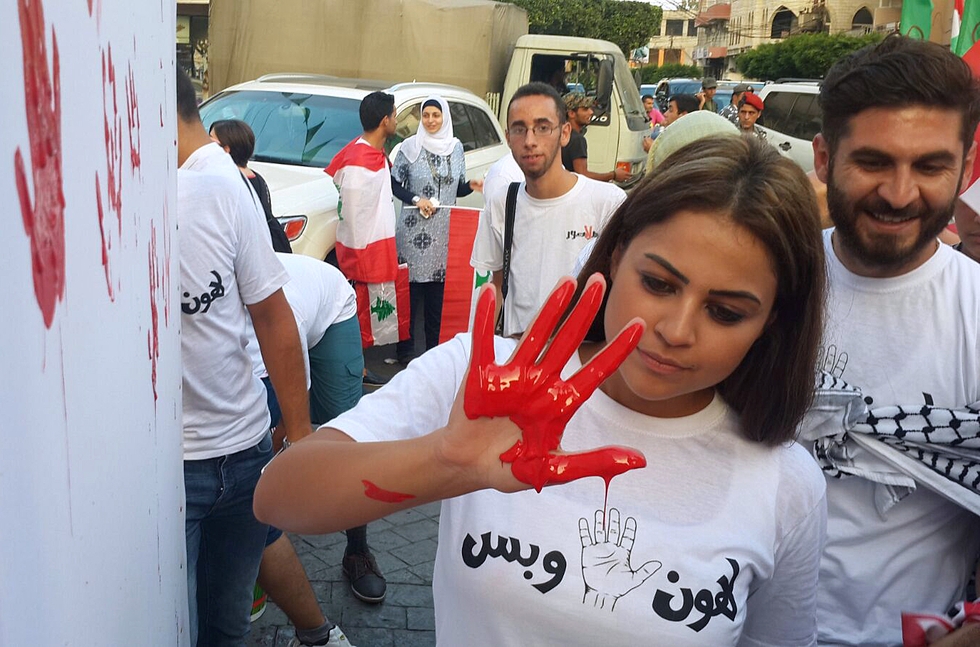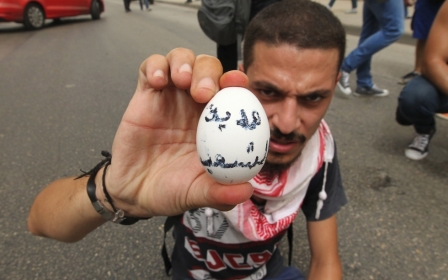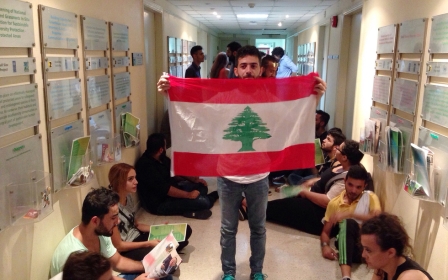Lebanon's 'You Stink' campaigners criticise rubbish plan

The organisers of Lebanon's "You Stink" mass protests over piles of festering rubbish in the streets on Thursday criticised the government's long-awaited plan to deal with the crisis.
Thousands of demonstrators have taken to the streets of Beirut in recent weeks to demand an end to long-standing political divisions that have affected even basic public services.
After a six-hour session, the cabinet announced late on Wednesday measures including handing waste management duties to municipalities and temporarily reopening the country's largest landfill site.
But activists said the plan was too vague and did not meet their demands.
"Our first reaction to the plan is a negative one, especially in terms of the reopening of the Naameh landfill, even if it is temporary," said Lucien Bourjeily from the You Stink campaign.
He said it was unclear how waste management duties would be transferred to municipalities - a key demand of his protest movement.
"What happened is what the government always resorts to when it wants to calm down the street: partial solutions, 10 percent of which will be implemented," Bourjeily told AFP.
Political divisions
Lebanon's political system is deeply divided between two main blocs, which has caused months of political paralysis.
One bloc is led by the Shia Hezbollah movement and the other is headed by Sunni former prime minister Saad Hariri.
Lebanon has been without a president for more than a year, with its divided parliament unable to elect a successor despite meeting more than two dozen times.
The waste management crisis began in July when the Naameh landfill closed, causing rubbish to pile up on roadsides and in parking lots and riverbeds.
It sparked broad-based protests in Beirut, where hundreds gathered again on Wednesday despite a sandstorm to demand a long-term solution to the rubbish fiasco.
Under the plan, the Naameh landfill is to be reopened for seven days to dump waste already in the streets, in a step that risks opposition from residents of nearby villages.
Over the next 18 months, two landfills in the northern region of Akkar and the eastern border area of Masnaa would take in waste as a medium-term measure.
The two sites are already being used as local landfills, but they will be adapted to meet environmental standards and accept waste from Beirut and other areas - a plan not everyone is happy with.
"Akkar is our heaven, not your rubbish dump," an activist group based in the area wrote on its Facebook page.
In the meantime, municipalities will prepare the necessary infrastructure to take on all waste management-related responsibilities.
Plan 'viable'
But it remains unclear how municipalities will recycle or dump waste.
Bassam Kuntar, a member of the ministerial committee that developed the plan, said if municipalities were not ready to take over rubbish duties within 18 months, "the rubbish will be back out in the streets".
The cabinet plan was met with cautious approval from environmental experts.
"The plan is viable, and it can be implemented. We can say it's 80-percent positive," said Ziad Abichaker of Cedar Environmental, a group that specialises in recycling technology.
Abichaker said the plan could boost Lebanon's recycling rate, which now stands at eight percent, but bemoaned the lack of a long-term vision.
"Lebanon is a small country, and it cannot have landfills forever. What will the new generation inherit?"
On Wednesday, the country's leading parties met for a "national dialogue" intended to address the political gridlock and particularly the presidential void.
But the session ended without any achievements, and a simple announcement that more talks would be held next week.
New MEE newsletter: Jerusalem Dispatch
Sign up to get the latest insights and analysis on Israel-Palestine, alongside Turkey Unpacked and other MEE newsletters
Middle East Eye delivers independent and unrivalled coverage and analysis of the Middle East, North Africa and beyond. To learn more about republishing this content and the associated fees, please fill out this form. More about MEE can be found here.




